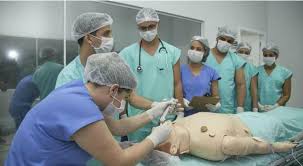New medical schools, solution or problem?
DOI:
https://doi.org/10.25118/2763-9037.2024.v14.1325Keywords:
health status disparities, medical education, medical schools, health workforce, health systems, healthcare quality, health services accessibility, public health, resource allocation, healthcare inequality, medical trainingAbstract
In recent years, Brazil has seen a significant increase in the number of medical schools. The government justifies this expansion as a response to the growing demand for healthcare professionals in a country with over 211 million inhabitants. However, this proliferation raises concerns about the quality of medical education and the effectiveness of addressing public health issues. The uneven distribution of doctors in Brazil is more a structural issue related to the organization of the health system and resource allocation rather than a shortage of professionals. Furthermore, the creation of new medical schools without stringent quality controls may undermine the quality of medical training. The exponential growth in medical schools does not ensure equitable distribution of doctors or improvement in healthcare quality. A strategic approach is necessary to address physician distribution by investing in health system management and adequate infrastructure.
Downloads
Metrics
References
Pacheco F. MEC Autoriza 15 novos cursos de medicina em julho de 2024 (atualizado). São Paulo: Resmedica; 2024.
Instituto Brasileiro de Geografia e Estatística. Estimativas da população. Rio de Janeiro: IBGE; [citado em 14 ago 2024]. https://www.ibge.gov.br/estatisticas/sociais/populacao/9103-estimativas-de-populacao.html
Conselho Federal de Medicina. Demografia médica. Brasília: CFM; c2023. https://observatorio.cfm.org.br/demografia/#apresentacao

Published
How to Cite
Issue
Section
License
Copyright (c) 2024 César Augusto Trinta Weber, Antônio Geraldo da Silva

This work is licensed under a Creative Commons Attribution-NonCommercial 4.0 International License.
Debates em Psiquiatria allows the author (s) to keep their copyrights unrestricted. Allows the author (s) to retain their publication rights without restriction. Authors should ensure that the article is an original work without fabrication, fraud or plagiarism; does not infringe any copyright or right of ownership of any third party. Authors should also ensure that each one complies with the authorship requirements as recommended by the ICMJE and understand that if the article or part of it is flawed or fraudulent, each author shares responsibility.
Attribution-NonCommercial 4.0 International (CC BY-NC 4.0) - Debates em Psiquiatria is governed by the licencse CC-By-NC
You are free to:
- Share — copy and redistribute the material in any medium or format
- Adapt — remix, transform, and build upon the material
The licensor cannot revoke these freedoms as long as you follow the license terms. Under the following terms:
- Attribution — You must give appropriate credit, provide a link to the license, and indicate if changes were made. You may do so in any reasonable manner, but not in any way that suggests the licensor endorses you or your use.
- NonCommercial — You may not use the material for commercial purposes.
No additional restrictions — You may not apply legal terms or technological measures that legally restrict others from doing anything the license permits.





























